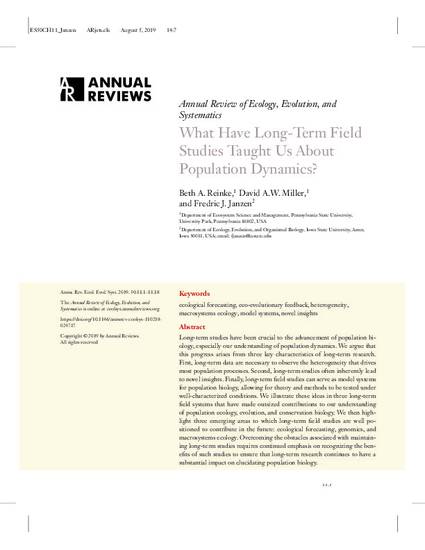
Article
What have long-term field studies taught us about population dynamics?
Annual Review of Ecology, Evolution, and Systematics
(2019)
Abstract
Long-term studies have been crucial to the advancement of population bi- ology, especially our understanding of population dynamics. We argue that this progress arises from three key characteristics of long-term research. First, long-term data are necessary to observe the heterogeneity that drives most population processes. Second, long-term studies often inherently lead to novel insights. Finally, long-term field studies can serve as model systems for population biology, allowing for theory and methods to be tested under well-characterized conditions. We illustrate these ideas in three long-term field systems that have made outsized contributions to our understanding of population ecology, evolution, and conservation biology. We then high- light three emerging areas to which long-term field studies are well po- sitioned to contribute in the future: ecological forecasting, genomics, and macrosystems ecology. Overcoming the obstacles associated with maintain- ing long-term studies requires continued emphasis on recognizing the ben- efits of such studies to ensure that long-term research continues to have a substantial impact on elucidating population biology.
Disciplines
Publication Date
Fall August 5, 2019
Citation Information
Beth Reinke, David A.W. Miller and Fredric J. Janzen. "What have long-term field studies taught us about population dynamics?" Annual Review of Ecology, Evolution, and Systematics (2019) Available at: http://works.bepress.com/beth-reinke/2/
